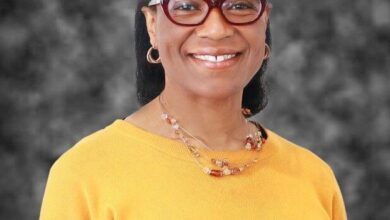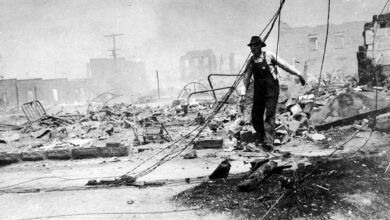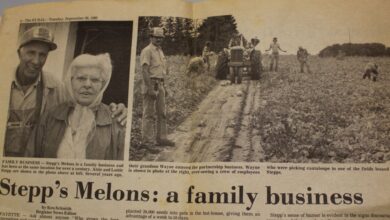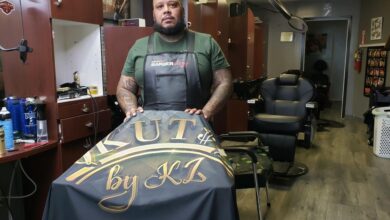A problem: Legacy media coverage of Black people

This history of negative or limited Black media coverage: The data
As Black History Month has ended, what has been very heavy on my mind is media coverage. I have a true story to tell you that reflects the lived experience of so many Black people when it comes to negative or limited media coverage.
There are data-driven facts demonstrating this truth and why I tell you this story. My hope is that it is a learning moment that you can carry with you the other 11 months of the year. Do not make the repeated mistake of assuming that I am just an angry Black man venting without seeking to understand.
According to recent studies, upward of 70% of top newspaper editors are men; and nearly all of them are white. Pew Research reported in a 2023 survey of 5,000 Black adults that 63% of Black people feel the news of Black Americans is primarily negative; 57% say the media only covers certain aspects of the Black community; 50% say the coverage is often missing critical information; and over 40% say that the coverage is full of stereotypes. The majority of those surveyed do not see a brighter future for better coverage of Black folks unless there are significant changes inside major news organizations.
This data is reflective of Iowa as well. However, like many other places, we don’t need the data to know this. All we need to do is turn on a TV, open an app, open an email, or open the traditional newspaper and live this experience daily.
So, if we know these facts about Black media coverage to be true, then the question we really need to deal with is why is this the case? Why do Black people experience such negative or limited media coverage unless it is February? At some point, we must question the system, speak to truth to power, and take other necessary actions to influence the media coverage equity we desire. We have to get to the root cause, to provide space to understand negative coverage intent vs. impact and make informed decisions about what needs to change when we spot the inequities.
A local problem: How this history is reflected in Cedar Rapids media
This is why my story matters and where it begins.
While I have witnessed negative or limited media coverage about Black people in our own community, never in my life have I personally experienced the use of media privilege, power, and control to ignore covering a major event celebrating the legacy of one of the greatest Black Heroes of my life, Dr. Martin Luther King Jr.
In January, I helped host Cedar Rapids’ first-ever statewide MLK conference, to honor the birthday and legacy of this American hero. The event comprised over 20 major Black leaders from all over Mid- and Eastern Iowa; over 60 registered business vendors, most of them Black owned; over 40 local and major company sponsors, and more. Every well-known media outlet in the Cedar Rapids/Iowa City market covered the event, including many outside of the market, even statewide and national coverage. I want to thank those outlets again: The Gazette as our media partner, KCRG, KGAN, Iowa Public Radio, Black Iowa News, WMT Radio and The Grio.
The only major media outlet in this market that did not cover us was the premier business publication, The Corridor Business Journal (CBJ). This organization received the news release twice — the first time almost 3 months prior to the event, and the second one a month later, several weeks before the event. The owner also responded via email that he would get the information to his editing staff. CBJ then went silent, and we never heard from them again.
How this organization, with a major footprint in Eastern Iowa, dedicated to news about the business community, would miss coverage of a major MLK event in their backyard that included mostly Black-owned businesses, was deeply disturbing. However, it was only fair to ask the owner why the event was not covered to understand rather than draw uninformed conclusions. So, the following week after the event I reached out to the owner and below were the excuses given to me. I provide my commentary for each one because once I received these excuses, my conclusions became informed expressions based on a body of evidence starting in October:
1. “With our small news staff, we simply can’t cover everything requested or suggested.” CBJ had almost three months from the time we sent the first release to write a story about this event without burdening their staff with work.
What does this “small staff” excuse say about how the organization values coverage of a major MLK/Black business event when they had 3 months lead time to interview us?
2. “I hope you reached out to the daily newspapers that have larger newsrooms than we do. I don’t recall seeing any coverage from them. Did they?” At least four of the media outlets who covered the event have smaller staffs.
3. “We rarely cover weekend events because we have a small news staff.” There was never a requirement to be on-site the day of the event. All media outlets who covered the event interviewed us several days or weeks ahead of time.
4. “I don’t recall seeing any coverage … probably because our paper delivery those days were late.” For the CEO of the area’s premier business publication to say he is unaware of this coverage is either an unfortunate misstep or willful ignorance.
What to do about it: Local solutions
To do better and be better, we as humans must be able to address biases that we know we have or be willing to address them when we discover what they are. Sometimes those discoveries come via self-awareness, but often for those with privilege and power, these discoveries come by accident. We all make mistakes. But we must all be held accountable for our actions.
In CBJ’s case, in addition to acknowledgment of their mistake, whether intentional or not, there is an opportunity to do better:
1. Get proactive now about the future diversity of the staff. When you have no diverse voices making news decisions, it is easy to overlook valuable stories that lift Black people. This is one of the changes pointed out in Pew’s research — the need for more Black journalists and leaders in major media outlets.
2. Grow the cultural competencies of decision-makers. Whether you have Black people at the decision-making table or not, the ability for the staff to have a pulse on the communities they serve is vital to creating equitable and powerful media coverage that benefits the entire community.
The media is one of the most powerful instruments of influence on the planet, and those who control coverage decisions play a unique role in helping shape our society. We are witnessing this in real-time in the world literally as I type. We cannot afford silence when our media coverage is not doing better by Black people.
While this story reflects the challenges of receiving more positive Black media coverage, I challenge you to substitute the word “Black” with “Hispanic,” “Asian,” “Indian,” “disabled,” “LGBTQ” or “poor,” or any other marginalized descriptor, and do your research.
Notice anything similar?
Anthony Arrington is a native and nearly lifelong resident of Cedar Rapids, and a community activist.
Opinion content represents the viewpoint of the author or The Gazette editorial board. You can join the conversation by submitting a letter to the editor or guest column or by suggesting a topic for an editorial to editorial@thegazette.com
























































